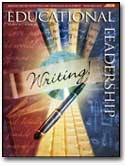Few can argue with the basic premise of the No Child Left Behind Act (NCLB). Who doesn't support the idea of school improvement and accountability? Two recent studies show that the more the legislation hits home, however, the greater the public's skepticism. School improvement and accountability are one thing; high-stakes testing and withholding federal funds from schools classified as underperforming—especially when that school happens to be the one your child attends—is something else entirely.
What Voters Think
A recent national opinion poll of 1,050 registered voters shows increasing opposition to NCLB. This trend is noteworthy in light of the fact that President George W. Bush cites NCLB as a major domestic accomplishment in his bid for reelection. Conducted by Public Education Network (PEN) and Education Week and funded by MetLife Foundation, the study, Learn. Vote. Act: The Public's Responsibility for Public Education, suggests that as voters become more familiar with the provisions of NCLB, they are less likely to support them.
Key Findings
Respondents consider education a top national priority, second only to the economy and jobs. When asked what most concerns them, voters selected the economy and jobs (27 percent); education (15 percent); health care (13 percent); and terrorism and security (8 percent) as the top four contenders.
Public awareness of NCLB is growing, with 75 percent of respondents indicating that they have heard of the law, compared with 56 percent in 2003. Support for the legislation has dropped only slightly from last year—from 40 percent to 36 percent—but the percentage of voters who oppose the law has grown substantially—from 8 percent in 2003 to 28 percent in 2004.
Voters registered concern about funding and about provisions relating to special education students and students with limited English skills. Fifty-seven percent indicated that there has been insufficient federal funding for education at both the local and national levels. Fifty-eight percent disapprove of requiring special education students to take the same tests and perform to the same standards as students without disabilities, and almost half—46 percent—disapprove of holding students with limited English skills to the same standards as native English speakers.
Respondents also rated President Bush's performance on public education. Although 45 percent approved of the president's performance in this area, with 10 percent strongly backing his record, 52 percent disapproved of his performance, with 25 percent indicating that he has done a poor job.
So who will get their vote? Sixty percent of voters indicate that they will most likely vote for a presidential candidate who puts education at the forefront of the agenda. When asked about platforms that would make them more or less likely to support a presidential candidate, the majority of respondents favored a candidate who would fully fund Head Start (87 percent); reduce class size (87 percent); protect public education from budget cuts (83 percent); and increase teacher pay (82 percent).
What Parents Think
To understand the views of U.S. parents on NCLB's school reform agenda, Results for America conducted an opinion poll of 699 parents of students in grades K-12. Results for America is a project of the nonprofit Civil Society Institute, an organization that seeks to improve society by encouraging problem-solving interactions among communities, government, and business. The survey shows that as NCLB moves beyond the abstract idea of improving education into such real-world reforms as high-stakes testing and punishing schools for low performance on these tests, most parents have major concerns.
Key Findings
According to the report, more than three-fourths of parents (78 percent) have heard of NCLB, and most parents who have heard of the legislation support it (68 percent). In terms of the perceived impact of NCLB, a majority of parents (64 percent) believe that it identifies weak schools that need to improve, but fewer than half (46 percent) think that the legislation will improve learning. Thirty-four percent perceive it as punishing schools for failure instead of rewarding them for success, and 25 percent think that it limits student learning.
Reacting to a description of high-stakes testing, 51 percent of respondents indicated that they supported the idea, with 17 percent of that group in strong support. Forty-five percent oppose high-stakes testing, with 25 percent strongly opposing the practice.
When asked if they would support taking money away from their child's school if it was classified as “failing” or underperforming, most respondents—73 percent—opposed the move, with only 19 percent favoring it. Opinion cut across most demographic and political groupings: A majority of both supporters and opponents of NCLB—as well as a majority of Democrats, Republicans, and Independents—said that they would oppose withholding federal funds from their child's school.
Parents were also asked about their priorities for federal education spending. Fifty-two percent indicated that additional funding, were it available, should go toward providing smaller classes. There was little support for diverting additional funds to implement NCLB, with only 10 percent in favor of that option.
For more information about the study Learn. Vote. Act: The Public's Responsibility for Public Education, visitwww.publiceducation.org/pdf/national_poll/2004_Learn_Vote_Act.pdf. Complete coverage of the Results for America survey is available athttp://resultsforamerica.org/calendar/files/RFA%20NCLB%20parents%20poll%20FINAL.pdf.

